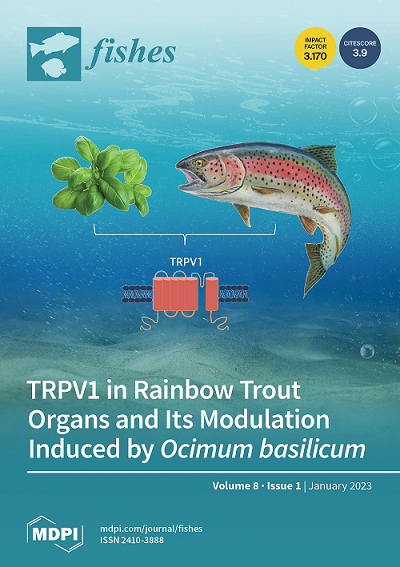The Influence of Body Size on Behavioral Thermal Preference in Atlantic Cod (Gadus morhua): Larger Fish Favor Colder Waters
IF 2.4
3区 农林科学
Q2 FISHERIES
引用次数: 0
Abstract
In the context of global warming and the concurrent decrease in ectothermic fish body size, the mechanisms driving this phenomenon remain a subject of scientific debate. This study, utilizing the Atlantic cod (Gadus morhua) as a model organism, delves into the behavioral size-dependent temperature preference in the context of climate change. A significant negative correlation between temperature preference and fish size was discovered, aligning with in situ habitat temperatures and optimal physiological performance metrics from other studies. This correlation suggests that larger fish exhibit a behavioral preference for colder areas, potentially leading to shifts in distribution toward polar regions or deeper waters in response to local global warming. The findings contribute to predictions of species distribution shifts, emphasizing the critical role of size-dependent temperature preference in shaping fish populations and offering valuable insights for conservation efforts. Additionally, the study uncovers a noteworthy relationship between body size and thermal safety margins in fish behavior, providing a novel avenue for future research into the intricate dynamics of thermal regulation in response to climate change. Overall, this research enhances our understanding of the complex interplay between temperature, fish size, and ecological responses, offering crucial information for informed conservation and management strategies.体型对大西洋鳕鱼(Gadus morhua)行为热偏好的影响:体型较大的鱼喜欢较冷的水域
在全球变暖和同时变温鱼类体型减小的背景下,驱动这种现象的机制仍然是科学争论的主题。本研究利用大西洋鳕鱼(Gadus morhua)作为模式生物,深入研究了气候变化背景下行为大小依赖的温度偏好。温度偏好与鱼类大小呈显著负相关,这与其他研究的原位栖息地温度和最佳生理性能指标一致。这种相关性表明,较大的鱼类表现出对较冷地区的行为偏好,这可能导致它们的分布向极地或较深的水域转移,以应对当地的全球变暖。这些发现有助于预测物种分布的变化,强调了大小依赖的温度偏好在塑造鱼类种群中的关键作用,并为保护工作提供了有价值的见解。此外,该研究还揭示了鱼类行为中体型和热安全裕度之间值得注意的关系,为未来研究应对气候变化的复杂热调节动力学提供了新的途径。总的来说,这项研究增强了我们对温度、鱼类大小和生态反应之间复杂相互作用的理解,为知情的保护和管理策略提供了重要信息。
本文章由计算机程序翻译,如有差异,请以英文原文为准。
求助全文
约1分钟内获得全文
求助全文

 求助内容:
求助内容: 应助结果提醒方式:
应助结果提醒方式:


